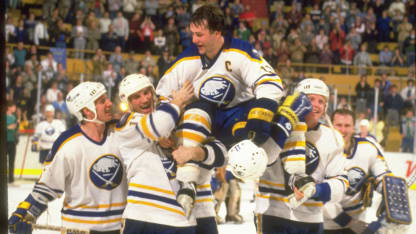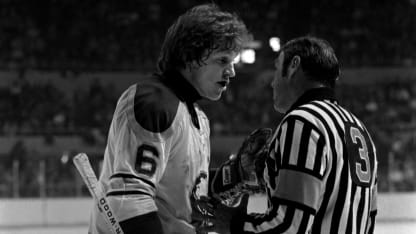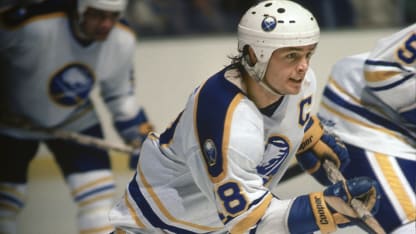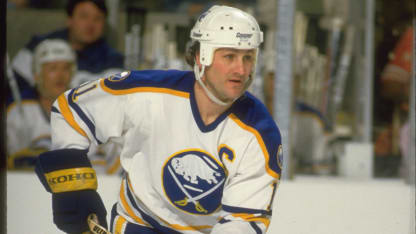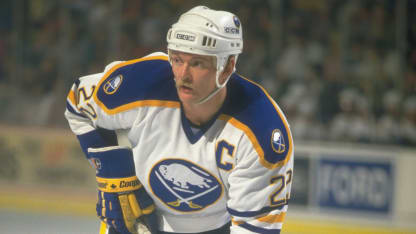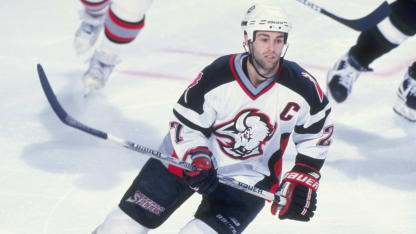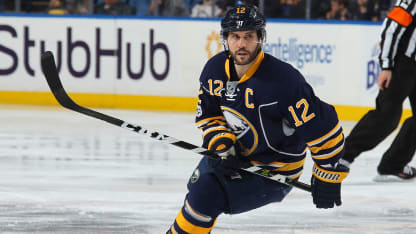I think, first and foremost, every good captain is a natural leader. Being a natural leader, you're going to lead by example. Because you can't have a voice in the locker room or hold others accountable unless you first do it all yourself, so you have to show it before you can talk about it.
Secondly, if you're on a good team and you're winning, being a captain is the easiest thing in the world. Where it becomes challenging is when things aren't going great. That's where real leadership shines through. Often, we really talk about a great captain as a single person, but no great captain is successful on their own. It's always a matter of support, much like a coaching staff or anything else. It's always a group effort.
With that said, certain individuals can command respect, can command a room. Ultimately, that's what a captain is.
For me as a captain, I just wanted to lead by example, first and foremost. I didn't have much of a voice early on. I was fortunate to have a guy like Rob Ray in the locker room who was really good with his voice, and Brad May before he was traded was great to have. Those are two of many guys who were a great support staff to me.
It was funny, because before I was named captain, I was skating with Pat LaFontaine. We were skating together for part of the season before he got traded to the Rangers. He had told me, 'Look, you're going to be the next captain of this team,' and he gave me some advice.
The most important thing he told me was this: 'Just be yourself and don't feel like you've got to solve everybody's problems.'
If a young player is named captain, they don't all of a sudden have to become coach, team psychologist, counselor, any of that stuff. They just need to be themselves. They need to lead by example. Because they're going to get a feel for their teammates if they don't have a real good grasp of it already. Just understand how to build relationships and trust in the group.
You've got to make sure you continue to play the right way - you're not getting lazy, you're not short-changing on the backcheck, you're still finishing checks, you're still doing a lot of the little things that can really inspire people through difficult times. You want to make sure that people are still using positive language on the bench, in the locker room. You want to make sure guys are still getting their workouts in, they're practicing hard. You do that by leading by example. And if you're doing that and you're seeing others who aren't doing it, then it gives you the right to challenge people.
But those are the challenges, because I know at times when I was a young captain and things got bad - because I didn't have much of a voice - I'd get a little bit quiet and just hope my play would inspire. But then as you get a little bit older and you grow into it, you carry a voice and you're able to encourage people.
